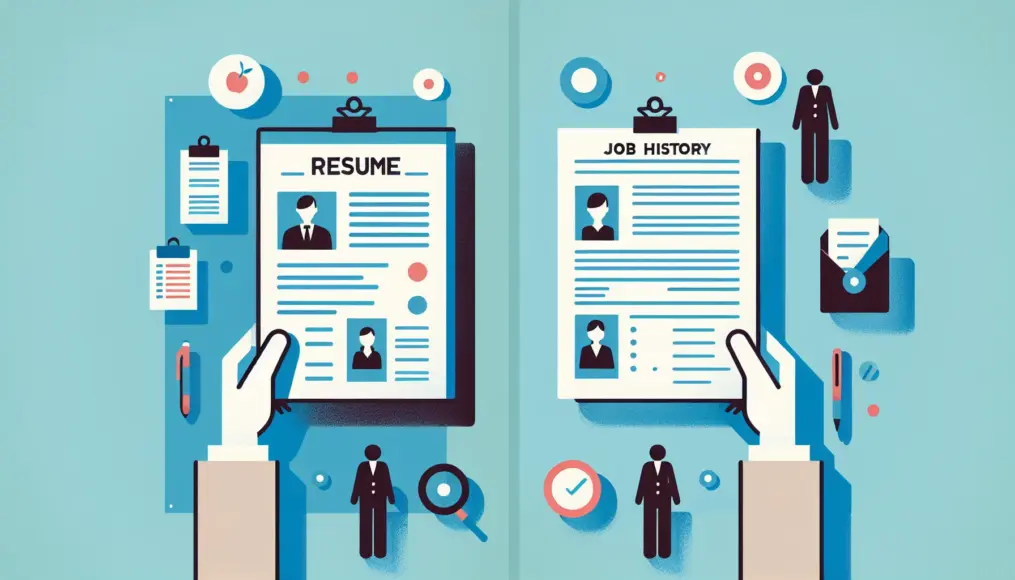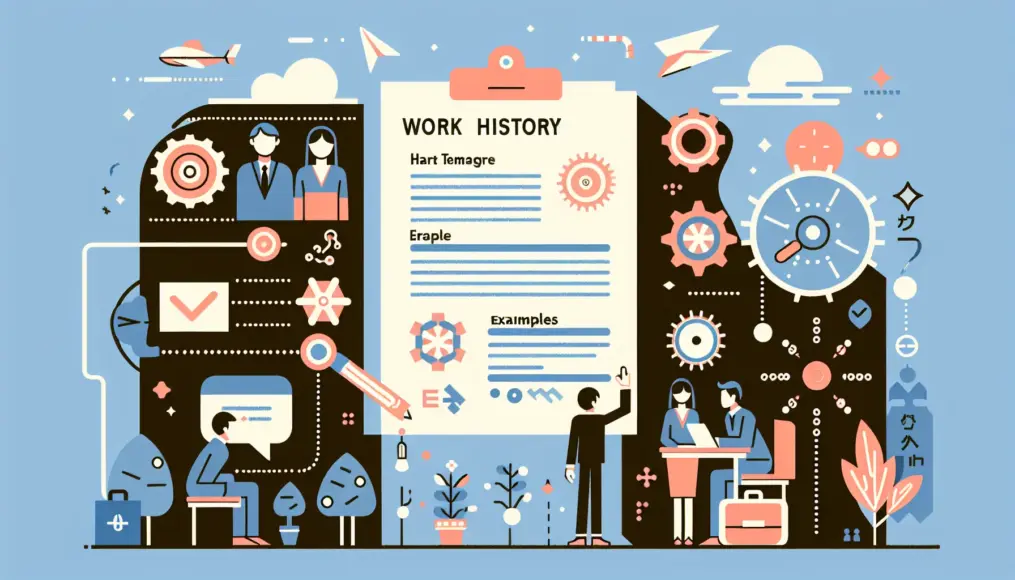When it comes to crafting a resume, having a diverse work history can sometimes leave you feeling unsure about how to present it to hiring managers. However, a rich tapestry of experiences actually showcases your depth and versatility. This presents a unique opportunity; with the right approach, you can leave a positive impression.
In this article, we’ll explore the mindset needed to view your varied work history positively, effective strategies for writing your resume, how to explain your experiences in interviews, and concrete ways to leverage your past roles for your future career. You’ll find plenty of tips to help you confidently highlight your experiences and move on to the next stage of your professional journey.
Get ready to create a compelling resume and speak confidently about your career in interviews. Your experiences might just open the door to new opportunities.
- Embracing a Positive Mindset About Your Work History
- Tips for Writing an Effective Resume and Explaining Your Experience in Interviews
- Leveraging Your Work History for Future Career Success
How to Approach a Resume with Multiple Job Experiences
If your resume has a long list of job experiences, you might feel anxious about how hiring managers will perceive it. However, having a diverse background is actually a significant advantage. Experiences from various workplaces can showcase your adaptability and a wide range of skills. In this section, we’ll explore how to view your job history positively and understand the perspective of hiring managers.
Instead of viewing your extensive job history as a drawback, focus on how to present it effectively. Organizing your experiences and reflecting on how they connect to your next career step can be a powerful mindset.
Viewing Your Job History Positively
Having multiple job experiences is evidence that you’ve gained valuable insights from different environments. This indicates that you are flexible and open to new challenges. By reflecting on your job history, you can reaffirm the skills and knowledge you’ve acquired, allowing you to confidently showcase them.
It’s essential to see your past experiences not just as a list of jobs but as opportunities for growth. By weaving your career into a cohesive story, you can leave a lasting impression on hiring managers.
- Job history showcases a breadth of experience
- View past experiences as opportunities for growth
- Craft your career into a compelling story
Understanding the Perspective of Hiring Managers
Hiring managers value diversity in job history but also seek consistency and growth. If you have held many positions, it’s crucial to clearly explain why you chose each job and what growth you experienced along the way. This clarity can turn what might seem like a crowded resume into a compelling narrative about your professional journey.
Moreover, if there are several short-term roles on your resume, hiring managers will likely want to know the reasons behind those transitions. Therefore, emphasizing specific achievements and lessons learned in each role is essential. This not only builds trust but also opens up pathways to the next steps in your career.
- Job diversity can be an asset
- Highlight specific achievements and lessons from each role
- Provide clear answers to hiring managers’ questions
How to Write an Effective Resume
When you have a diverse work history, the way you present your resume becomes especially crucial. By carefully selecting and organizing your experiences, you can make a positive impression on hiring managers. Additionally, clearly highlighting the skills that matter most allows you to showcase your strengths effectively. In this section, we’ll dive into how to choose and order your work history, as well as the key skills to emphasize.
A well-crafted resume can be a powerful tool that shapes your first impression. With a wealth of experience, it’s important to organize your background and think critically about how to present it, as this is the key to success.
Choosing and Ordering Your Work History
When listing your work history, it’s essential to focus on positions that are relevant to the job you’re applying for. By placing the most pertinent experiences at the top, you make it easier for hiring managers to recognize your fit for the role. Additionally, emphasizing significant roles and achievements within each position can leave a lasting impact.
Instead of simply organizing your work history chronologically, consider grouping your experiences by content. For example, consolidating your experiences within the same industry can highlight your expertise and consistency. This organized approach helps convey a clearer narrative of your career journey.
- Choose relevant work experiences
- Highlight significant roles and achievements
- Organize your work history chronologically or by grouping
Skills to Highlight
When detailing your work history, it’s important not just to list your experiences but also to specify the skills you’ve developed. By describing the skills and achievements gained in each role, you can effectively showcase your capabilities.
Moreover, aligning your experiences with the skills sought by the prospective employer is crucial. This allows you to demonstrate how you can contribute to the company, giving you an advantage during the selection process.
If you’re interested in diving deeper into resume writing, we recommend checking out the article “The Key to Successful Job Changes! A Guide to Writing Effective Resumes and Work Histories.” This guide covers everything from the basics of resume writing to how to showcase your work history, along with insights into future trends, making it a valuable resource for your job search.
- Specify your skills clearly
- Showcase achievements from your work
- Align your experiences with the skills desired by the employer
How to Explain Your Work History in an Interview
When it comes to interviews, how candidates explain their work history is crucial. For those with diverse backgrounds, hiring managers are often eager to understand the context and reasons behind your career moves. By articulating your experiences effectively, you can showcase your qualifications and pave the way for the next step in your career journey. In this section, we’ll delve into how to demonstrate consistency in your work history and highlight your growth and learning experiences.
Having a varied work history isn’t necessarily a negative aspect. In fact, how you present it can significantly influence the impression you leave. By organizing your experiences and communicating them clearly, you can build trust with hiring managers.
Demonstrating Consistency in Your Work History
For those with multiple jobs, emphasizing consistency is particularly important. It’s essential to illustrate the themes and objectives that guided your career choices. For instance, even if you’ve worked in different industries, you can highlight the skills you’ve consistently applied or the growth you’ve experienced throughout your career. This approach helps convey a cohesive narrative to hiring managers about your professional journey.
Additionally, even with a diverse background, it’s important to clarify your roles and contributions at each workplace, detailing how you’ve evolved during your time there. This clarity allows hiring managers to grasp your career trajectory more easily.
- Highlight the themes and objectives of your work history
- Emphasize common skills across different industries
- Clearly explain your roles and contributions at each job
Discussing Growth and Learning
When explaining your work history in an interview, it’s also vital to touch on your growth and learning experiences. By specifically discussing what you’ve learned and how you’ve developed in each role, you can effectively showcase your motivation and potential. For example, sharing experiences of acquiring new skills or overcoming challenges can add depth and persuasiveness to your narrative.
Reflecting on your growth journey not only enhances your self-awareness but also ties into your future career plans. For interviewers, understanding your eagerness for growth and your commitment to learning is a critical point to consider.
- Specify your learning and growth experiences in each role
- Include stories of acquiring new skills or overcoming challenges
- Deepen your self-understanding and connect it to your future career plans
Leveraging Your Work Experience for Future Careers
When you have a diverse work history, figuring out how to leverage that experience for your future career becomes crucial. By organizing your past experiences and understanding your strengths, you can clarify your career plan. In this section, we’ll explore how to create a career plan that utilizes your past experiences and an action plan to foster personal growth.
A varied work history is a treasure for your career. How you choose to harness that experience will pave the way for your future success. Reflecting on your experiences and developing a concrete plan for what lies ahead can open doors to your next steps.
Crafting a Career Plan Based on Past Experiences
To effectively leverage your past experiences, it’s essential to first take stock of the skills and knowledge you possess. Experiences gained in different workplaces provide a range of perspectives. Considering these insights, think about how you can contribute to the career path you aspire to.
Moreover, aligning your experiences with the skills that potential employers are seeking will help you create a more specific career plan. By viewing your diverse work history as an asset, you can establish a clear direction for your career grounded in your unique experiences.
- Organize your skills and knowledge
- Consider your career direction based on your experiences
- Match your experiences with the skills employers are looking for
Creating an Action Plan for Personal Growth
To foster personal growth, it’s important to develop a concrete action plan. For instance, start by listing the skills you need moving forward based on your past work experiences. Participating in training sessions or seminars aimed at skill enhancement can also be very effective.
Additionally, clarifying the roles you want to take on in your career and planning the necessary activities to achieve those goals is vital. Regular self-evaluation will help you track your growth and maintain motivation as you navigate your career path.
- List the skills you need
- Attend training sessions or seminars
- Clarify your career role
Summary
If you have a diverse work history, it’s crucial to view it positively and highlight it effectively. By creatively presenting your experiences in your resume and during interviews, you can turn what might seem like a drawback into a strength. Pay special attention to how you select and order your job experiences, as well as how you emphasize your skills. Additionally, crafting a career plan based on your past experiences, along with an action plan for personal growth, can pave the way for your future steps.
Organizing your work history and maintaining consistency can instill confidence in hiring managers. It’s important to leverage your varied experiences and build your next career move with confidence.
- A diverse work history can be leveraged as a strength
- How you present yourself in your resume and interviews matters
- A career plan based on past experiences can lead to future opportunities
I hope your work history serves as a powerful stepping stone for your next chapter. Feel free to share your thoughts or questions about this article in the comments!



Comment